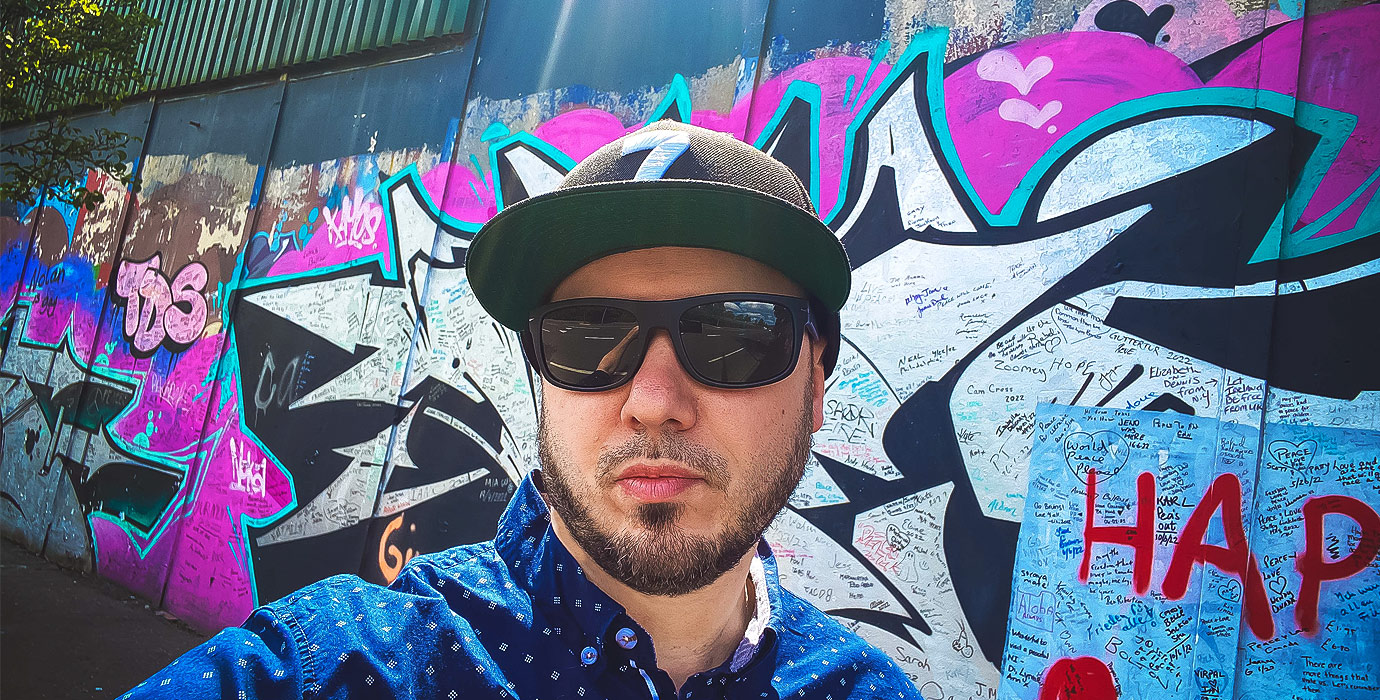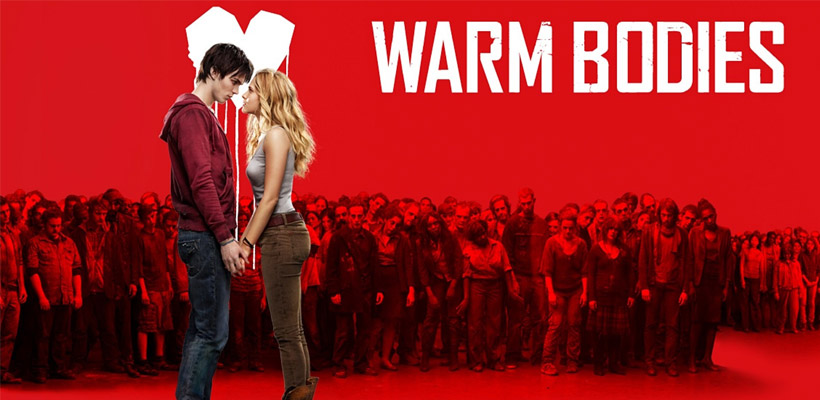WARNING: SPOILERS
Warm Bodies is an exploration of what it means to be fully human and fully alive. Zombies are a perennial favorite for talking about these subjects. Are the "undead" alive? Are they "human"? But zombie movies are also a way of talking about the "other" and how we are to relate with them. I found
Warm Bodies particular good in both of these areas, while also being light-hearted (even funny at times) and not overly cheesy on the romance.
Looking at
Warm Bodies theologically, these questions and considerations take on a different hue. What do zombies have to do with Jesus? What does it means to be "fully alive" from a theological point of view? What does it mean to be "fully human"? And how are Jesus-disciples called to relate with the 'other'?
Zombies and Jesus?

Jesus and zombies are actually old friends. The first appearance of "Zombie Jesus" in popular culture is attributed to an episode of Matt Groening's cartoon Futurama back in 1999,
but the meme has progressively gained popularity in the years since—particular when Easter time comes around. While some find this meme offensive, even an "attack on Christianity," I don't think we should. I think the comparison can offer the Church an opportunity and common ground to make some important and hopefully helpful reflections.
For example, I found many of the themes captured in
Warm Bodies to be very compelling illustrations of Christian theology. For the sake of brevity, I'll constrain my thoughts to just three: What Christian theology has to say about life and death (Part 1); What Christian theology has to say about being human (Part 2); and What Christian theology has to say about relating to the 'other' (Part 3).
The Warm Bodies Setting
In the world of
Warm Bodies, something terrible has happened which has led to the infection of the vast majority of the earth's inhabitants. Those infected are rendered zombified. The only remnant of humanity we are aware of as viewers are holed up behind an enormous security wall they rarely venture beyond. The story centers around two characters, one a zombie and the other a non-zombie person.
The zombie main character lives at an abandoned airport. He has forgotten who he was before he became a zombie and he's even forgotten his name. (He's sure it started with a 'R'). And he is trapped in a body that has limited ability to communicate with others. Without this capacity, he feels "lost" and "dead." His internal monologue is still in tact so he's able to think and wonder if he is doomed to wander around the airport forever without really connecting with anyone. In this state, he can barely form words. He spends his days bumping into other zombies, and collecting things for his private airplane apartment.
The non-zombie main character is one of the remnant who have fortified themselves against zombie attacks and her father is the general of the last militia they know of. She and her father are no longer close relationally. They haven't been since he killed her mother, his wife, because she became infected by the zombie virus. She has a boyfriend, but he too has lost a parent to the virus and in the process lost some ability to feel and relate to others. Their mutual friend once had a dream of becoming a nurse, but she's since given up on it, and resigned herself to an existence of mere survival.
What Does it Mean to be Fully Alive?
Warm Bodies explores this question by showing that neither the zombies nor the non-zombies are truly living since the outbreak. Both groups have lost the ability to connect with each other, let alone the other group. Instead, they are locked in a seemingly never-ending conflict. Also, both groups have lost the ability to dream: zombies because it is a symptom of the zombie disease, and non-zombies because they believe they must defer them for the greater good. Both groups have forgotten what it was like to just live, and now they are just existing.
When we explore this question theologically, we must begin at the beginning—in Genesis. The biblical narrative paints a portrait of paradise lost. At one time, creation and Creator lived in loving harmony. This harmonious life is what the Hebrew word "
shalom" describes. Not only was there
shalom between humanity and God, there was also
shalom among humanity (between male and female) and among humanity and the rest of the life forms God created.
Then a disease entered our ecosystem. That disease is what Scripture calls "sin," and this sin disrupted and destroyed the
shalom of creation. It drove a wedge not only between creation and Creator, but also between male and female, between brothers, and between humanity and the rest of the life forms on earth. At every level
shalomwas broken through rebellion against God, discord between males and females, violence between brothers, and the misuse of the earth's resources. The vast majority of the biblical narrative is an extended description of the fallout of this outbreak and God's action to restore
shalom to God's good world.
Like the main characters in
Warm Bodies, humanity infected by sin is no longer truly living. We are embroiled in seemingly never-ending conflict and we have given up on the dream of
shalom restored. None of us can even remember what
shalom was like before sin broke in and destroyed it. Like the characters in
Warm Bodies, we go through life on auto-pilot, unable to truly connect, feeling lost and alone.
The Good News ("Gospel") is that God has cured our sin-sickness; God has come to administer the antidote in person! The apostle Paul has in mind the whole sweep of the biblical narrative (Old Testament), along with the actions that God has taken in Jesus of Nazareth, when he writes to Jesus's disciples who live in Rome during the latter half of the first century.
At just the right time, when we were still powerless, Christ died for the ungodly. Very rarely will anyone die for a righteous person, though for a good person someone might possibly dare to die. But God demonstrates his own love for us in this: While we were still sinners, Christ died for us. - Romans 5.6-8
In Jesus's life, death, and resurrection, God has acted in history to restore humanity to the
shalom state that was lost in the beginning. Just as sin broke into the relationships of creation (humanity/God, male/female, brother/brother, and humanity/creation) resulting in discord, violence, and death—God's action in Jesus of Nazareth has broken into those same relationships to bring about unity, reconciliation, and life!
Therefore, just as sin entered the world through one man, and death through sin, and in this way death came to all people, because all sinned… But the gift is not like the trespass. For if the many died by the trespass of the one man, how much more did God’s grace and the gift that came by the grace of the one man, Jesus Christ, overflow to the many! Nor can the gift of God be compared with the result of one man’s sin: The judgment followed one sin and brought condemnation, but the gift followed many trespasses and brought justification. For if, by the trespass of the one man, death reigned through that one man, how much more will those who receive God’s abundant provision of grace and of the gift of righteousness reign in life through the one man, Jesus Christ! - Romans 5.12, 15-17
To be fully alive, theologically speaking, is to receive God's free gift (grace) of new life by repenting of sin (rejecting sinful ways of life) and becoming part of Jesus's faith-family. When we turn to God for new life, turning away from our old life, God meets us in Jesus with the cure to our loneliness and with our true home. We are no longer lost, but found, no longer alone, but adopted into God's family. To be "baptized" into the "Church" is actually to be counted as a member of Jesus's family of faith, and to be united with Jesus in a "covenant" relationship of love. The destruction that inevitably awaited us in the undead existence we were living—plagued as it was with never-ending conflict—is abolished when God's new life floods into ours. We discover our true identities, our true family, and our true purpose for living.
As for you, you were dead in your transgressions and sins, in which you used to live when you followed the ways of this world and of the ruler of the kingdom of the air, the spirit who is now at work in those who are disobedient. All of us also lived among them at one time, gratifying the cravings of our flesh and following its desires and thoughts. Like the rest, we were by nature deserving of wrath. But because of his great love for us, God, who is rich in mercy, made us alive with Christ even when we were dead in transgressions—it is by grace you have been saved. And God raised us up with Christ and seated us with him in the heavenly realms in Christ Jesus, in order that in the coming ages he might show the incomparable riches of his grace, expressed in his kindness to us in Christ Jesus. For it is by grace you have been saved, through faith—and this is not from yourselves, it is the gift of God— not by works, so that no one can boast. For we are God’s handiwork, created in Christ Jesus to do good works, which God prepared in advance for us to do. - Ephesians 2.1-10
Stay tuned for Part 2: "What Does it Mean to be Fully Human?"
 Jesus and zombies are actually old friends. The first appearance of "Zombie Jesus" in popular culture is attributed to an episode of Matt Groening's cartoon Futurama back in 1999, but the meme has progressively gained popularity in the years since—particular when Easter time comes around. While some find this meme offensive, even an "attack on Christianity," I don't think we should. I think the comparison can offer the Church an opportunity and common ground to make some important and hopefully helpful reflections.
For example, I found many of the themes captured in Warm Bodies to be very compelling illustrations of Christian theology. For the sake of brevity, I'll constrain my thoughts to just three: What Christian theology has to say about life and death (Part 1); What Christian theology has to say about being human (Part 2); and What Christian theology has to say about relating to the 'other' (Part 3).
Jesus and zombies are actually old friends. The first appearance of "Zombie Jesus" in popular culture is attributed to an episode of Matt Groening's cartoon Futurama back in 1999, but the meme has progressively gained popularity in the years since—particular when Easter time comes around. While some find this meme offensive, even an "attack on Christianity," I don't think we should. I think the comparison can offer the Church an opportunity and common ground to make some important and hopefully helpful reflections.
For example, I found many of the themes captured in Warm Bodies to be very compelling illustrations of Christian theology. For the sake of brevity, I'll constrain my thoughts to just three: What Christian theology has to say about life and death (Part 1); What Christian theology has to say about being human (Part 2); and What Christian theology has to say about relating to the 'other' (Part 3).


